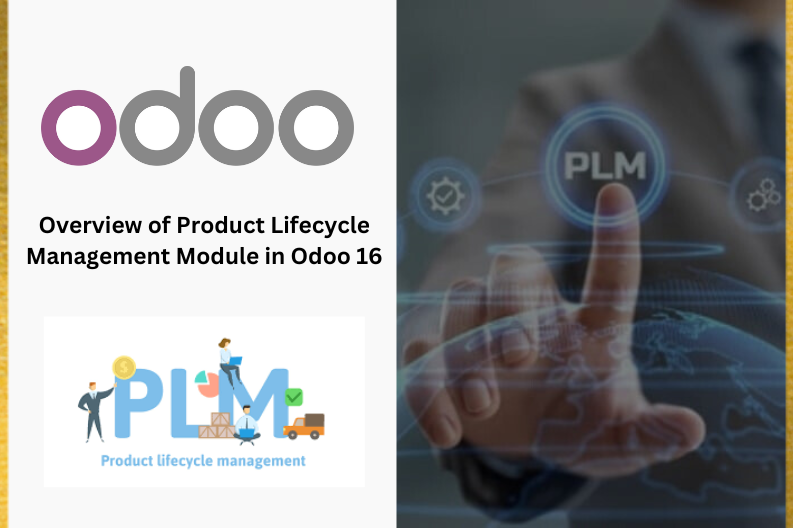
In the dynamic world of business , efficient product management is essential for staying competitive. Odoo , a popular open – source ERP platform , continues to evolve to meet the needs of businesses worldwide. In this blog post , we will explore the features of the Product Lifecycle Management ( PLM ) Module that empower businesses to manage their product from conception to retirement seamlessly.
What is Product Lifecycle Management (PLM) ?
Product Lifecycle Management (PLM) is a strategic approach to managing the entire lifecycle of a product , from its initial design and development through manufacturing , distribution , and ultimately , retirement . In Odoo 16 , the PLM module encapsulates tools and features designed to streamline each stage of this lifecycle , fostering collaboration, ensuring quality , and boosting efficiency.
Overview of PLM Module
ECOS ( Engineering Change Orders ) :
Within Odoo’s PLM module , Engineering Changes Order ( ECOs ) are structured processes designed to manage and monitor modifications to product designs, materials , documentation , and related processes. These ECOs empower businesses to propose , evaluate , endorse , and execute changes efficiently. The module maintains the integrity of documentation , encourages team collaboration , and facilitates industry standards and regulations throughout the product’s lifecycle. It serves as a central hub where innovative ideas are transformed into actionable enhancements.
Review and Approval :
The PLM module offers seamless workflows for accessing and authorizing proposed changes.
Implementation :
Tracking Integration of Changes meticulously tracked as they are integrated into the product.
Master Data : Digital Blueprint
At the core of the PLM ecosystem lies Master data , housing critical specifications and blueprints.
Products :
This stores essential product data , encompassing versions and associated documentation.
BOM ( Bill of Material ) :
The BOM provides hierarchical listings of components and resources necessary for manufacturing.
Work Centers :
Detailed Information regarding production locations , capacities , and resources allocations is available through Work Centers.
Reporting
PLM modules boast robust reporting capabilities , enabling stakeholders to generate tailor – made reports and analytics related to different aspects of the product life cycle. Whether it’s tracking project milestones , evaluating resources allocation , or assessing product performance , the reporting function empowers stakeholders to make strategic decisions based on accurate , up – to – date insights.
Configuration of ECO Stages , Types , and Tags
ECO Stage : defining the stages that a change request undergoes before implementation .
ECO Type : Tailoring change request categories based on the nature of the modification.
ECO Tags : Categorizing and retrieving changes effortlessly through tagging.
Odoo 16’s PLM ( Product Lifecycle Management ) module serves a toolkit , expertly guiding businesses through the entire product management journey – from the inception of to product retirement. By leveraging this module , tasks like design , collaborative work , change management , quality assurance , and faith in regulations become more streamlined. It facilitates the attainment of high product standards and customer satisfaction. While some aspects may have evolved , the core objective of simplifying and enhancing product management remains steadfast. This module contains valuable tools for managing product composition , change processes , and quality oversight, making it an indispensable asset for businesses.


